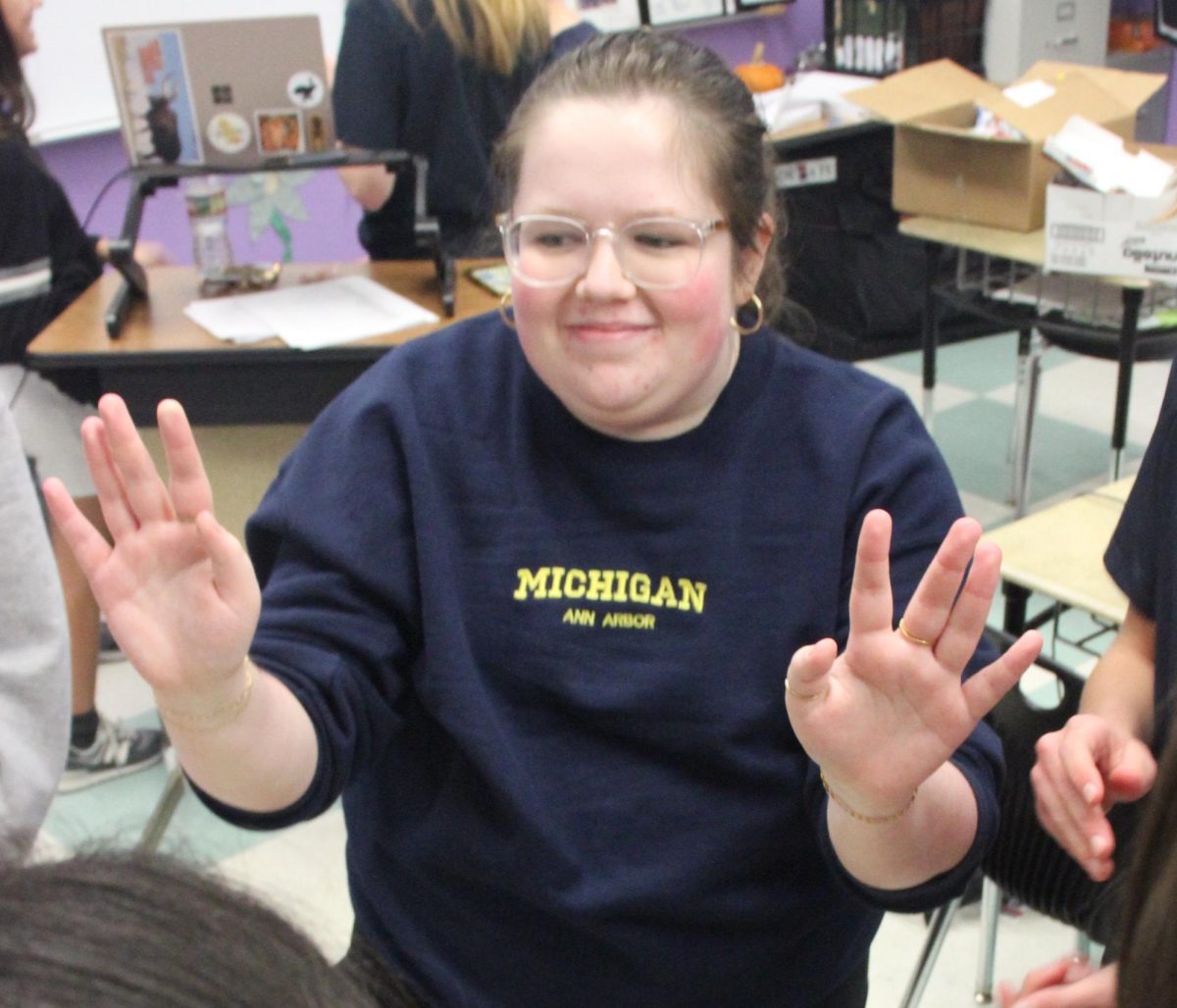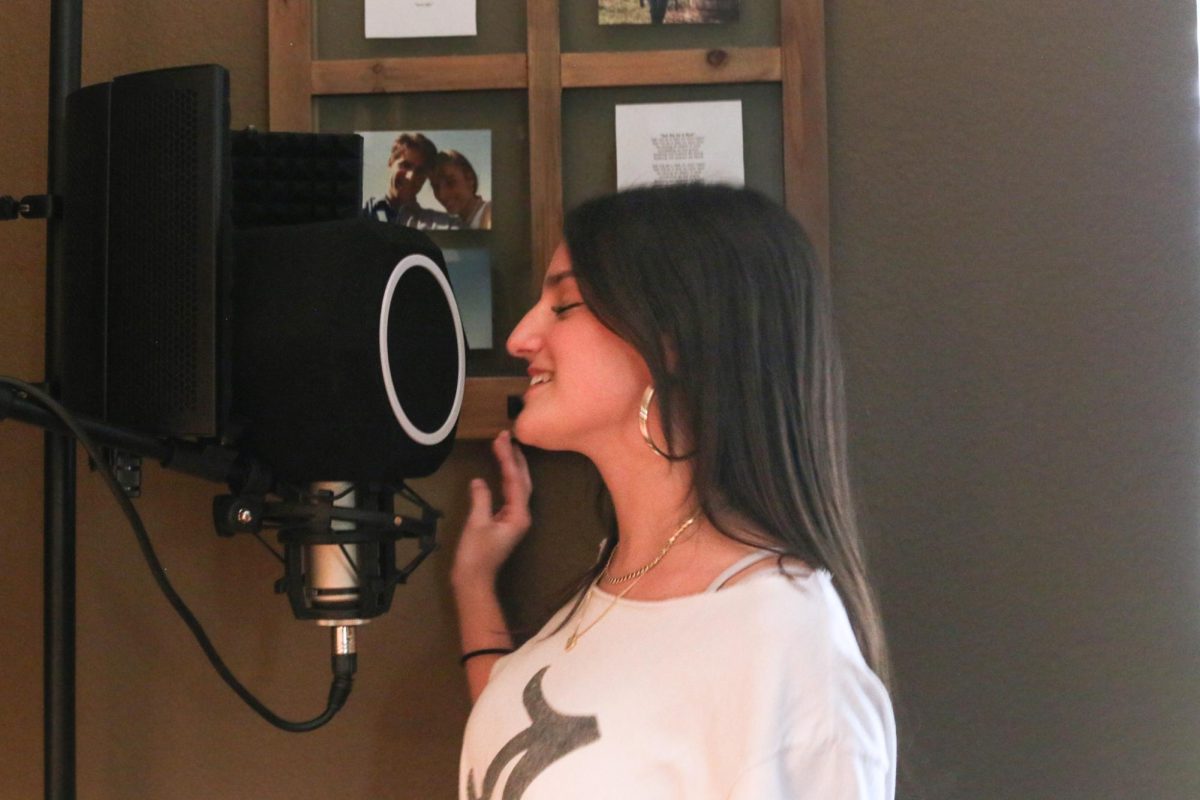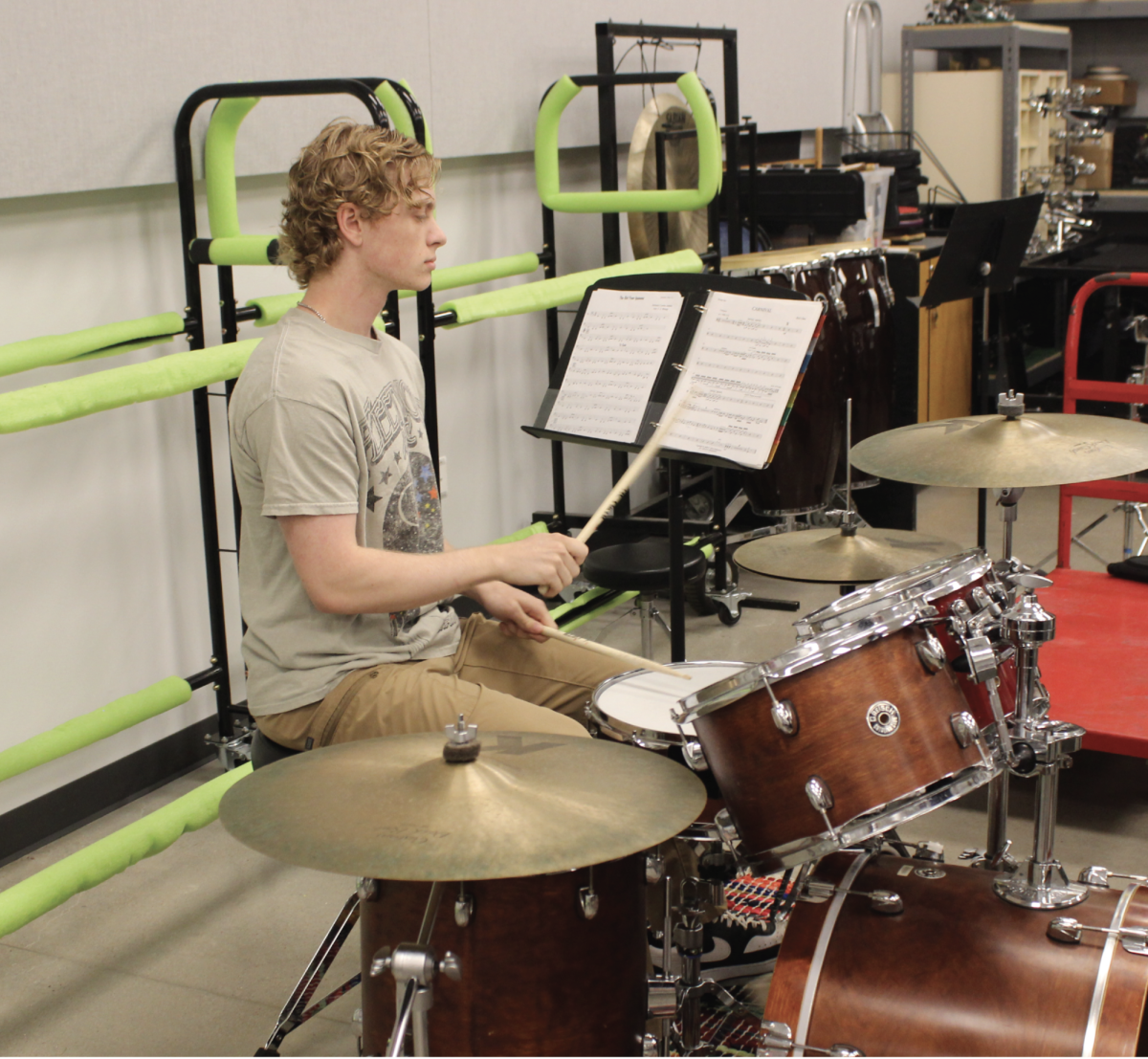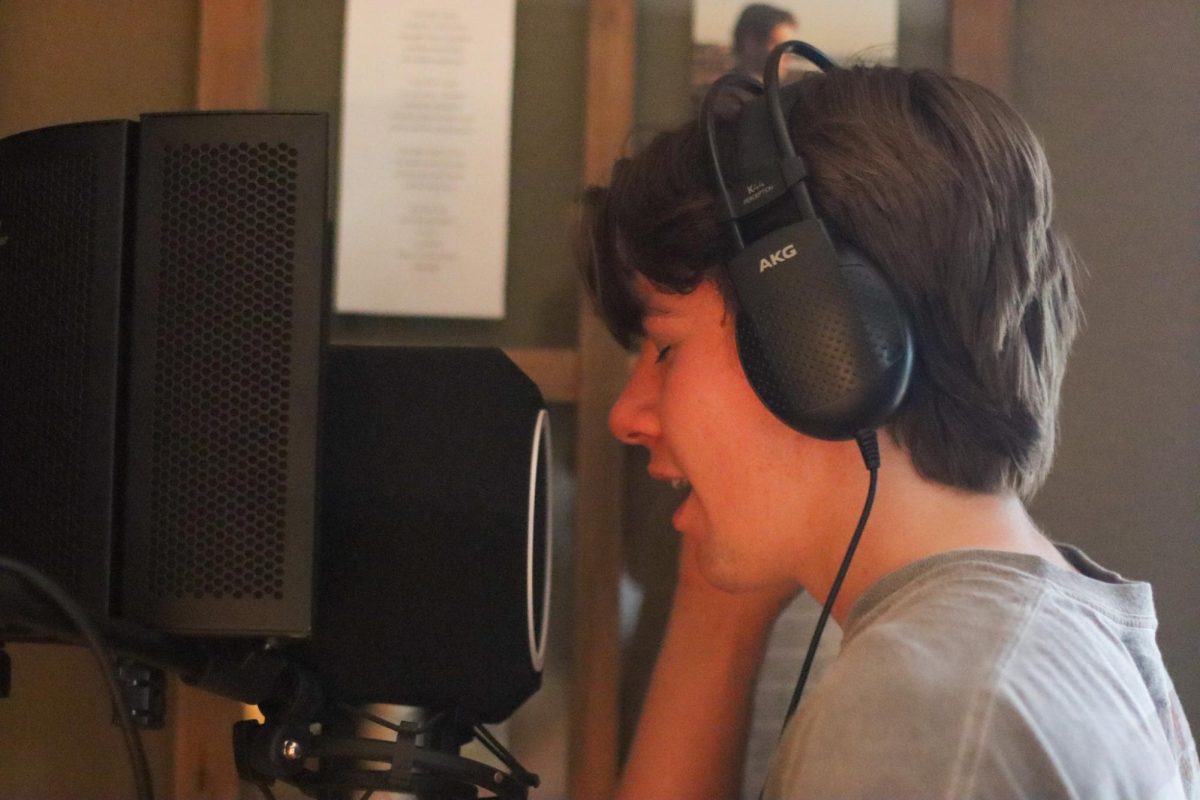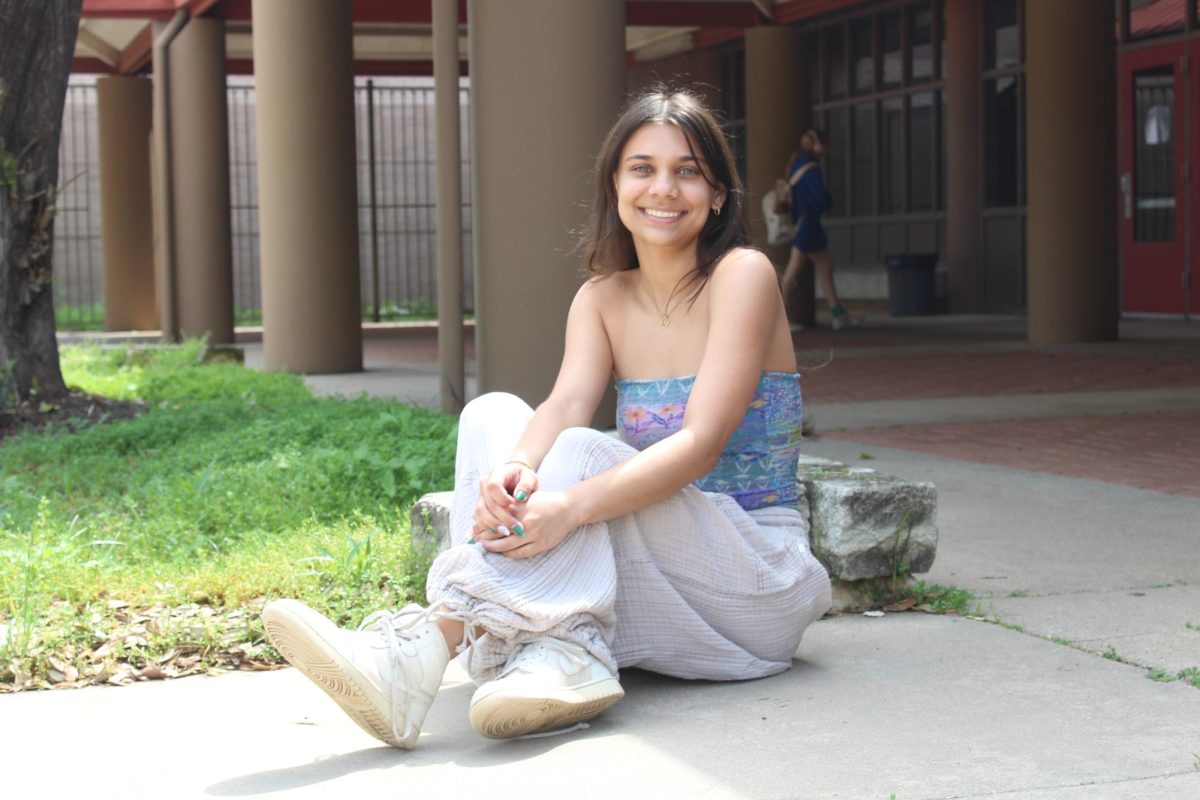Hand out the window, Doja Cat blasting through the car, junior Julia Low sings along to her favorite song on her way to her next debate tournament, ready to give her all.
Low was first introduced to debate her freshman year and immediately took an interest in the community and the competitions the team attended.
“I’ve always been a public speaker,” Low said. “I know a lot of people struggled to start with just getting over the learning curve of learning how to public speak or how to argue. I know that can be really difficult, but to me, it came naturally. It was really love at first sight with debate.”
According to Low’s mom, Nicole Shaw, many of these extroverted traits were noticeable from a young age and were heavily encouraged during conversations.
“Julia has long had an interest in discussing what is going on in the world,” Shaw said. “Conversations with family allowed her to become comfortable asking questions and clarifying information. Her curiosity and ease in engaging others in conversation allowed her to understand others’ points of view. This all contributed to her interest in the opportunities at the Bowie Debate Program.”
During Low’s first year in the debate program, she qualified for the Texas Forensic Association State (TFA State) and then advanced to the national competition.
“I became super dedicated,” Low said. “I’m most proud of my qualifications my freshman year. I didn’t think I was gonna make nationals. I told Mr. Mast, who’s our coach, that I’m not going to make this. He stared back at me and said you overthink yourself. Turns out that every single time I have said that to him, I always end up doing better than I did. I like to look back and see that, I really did strive for success.”
Tournaments host a multitude of speech and debate events, such as Public Forum, Lincoln Douglas, World Schools, Congress, and many more. For Low, her focus is on Congressional debate where the contestant gives speeches to convince an audience to affirm or negate a bill. Around three bills are debated per round and contesters are then judged based on their speech and questions.
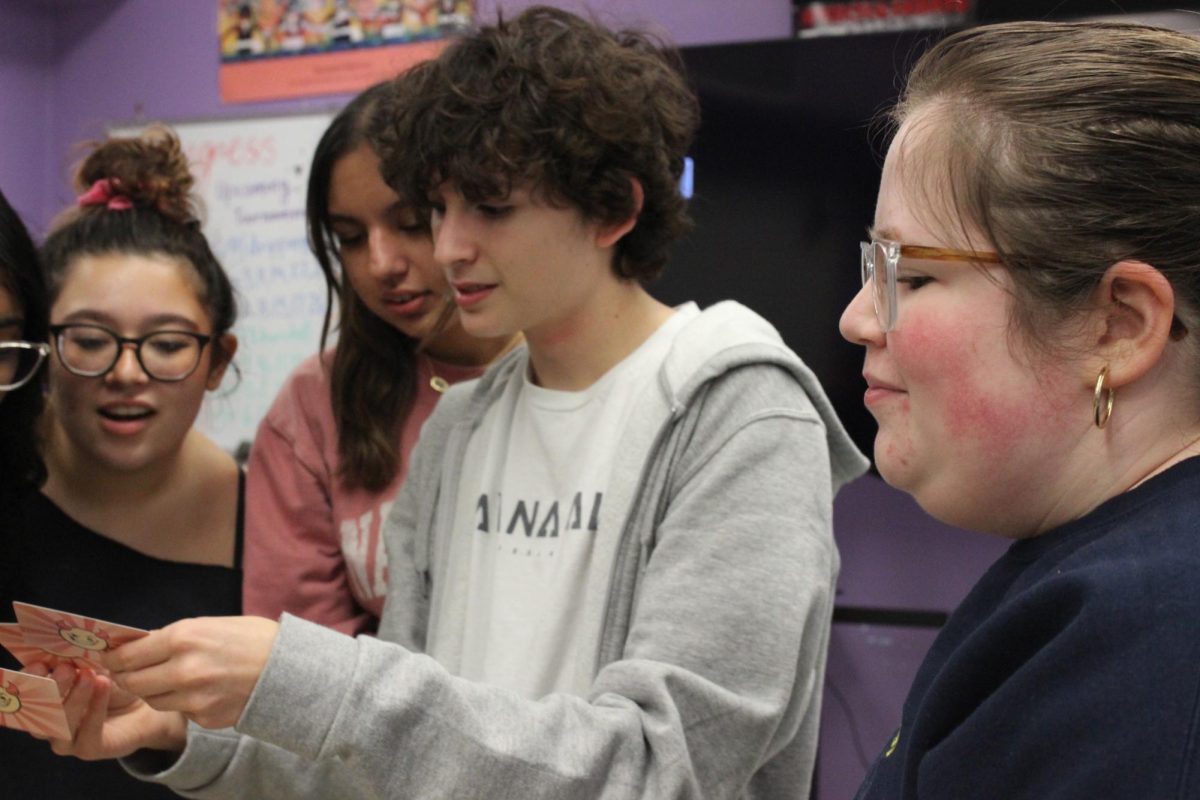
“She is very assertive when she talks,” senior Bodhi Rosen said. “She has a very commanding presence, which is good, and for congressional debate makes people think that they have to listen to her and hear what she’s saying.”
Inside the classroom, Low is an event chair for congressional debate. A part of this role is to assist novices, and freshman in debate, with prepping for their tournaments.
“I joined the debate team this year and I like to do Congress,” freshman Monalena Diab said. “I remember when I went to the debate camp in the summer, she was super welcoming. I automatically liked her and was super drawn to her. She is super outgoing and we talked about everything. She helped me with my speeches and looked over them and then we talked about random things.”
With tournaments every other weekend, event chair duties, and being a part of multiple clubs, Low’s schedule tends to be crowded.
“I am in multiple organizations,” Low said. “I do a bunch of different things, but it’s really important to just understand that. I’m definitely someone who goes to speech competitions way too much, I went to every single one during my sophomore year. You can really find a balance that works for you. And for me personally, it just means taking breaks when I need them.”
Despite the hectic schedule, Low has continued to pursue her passions in and out of debate.
“Julia really enjoys debate, which is good because debate keeps her very busy,” Shaw said. “She has been able to grow herself as a competitor. The content of her writing and the structure of her writing has improved and the focus of topics in a discussion as well.”
Preparing for tournaments looks different for each section of debate. For Low, certain methods have proven beneficial for speech.
“I really love speaking drills,” Low said. “Anyone who comes to the club or is in one of my events, they know I love speaking drills. It really helps with your performance and overall your argumentation. Just being able to think off the top of your head is super crucial and debate and I really love to work on that with speaking drills and making sure that we’re really fluent and being the best that we can be. One of the other main things in terms of preparation is just getting ready, like having your arguments ready.”
Qualification for TFA State is a long and extensive process requiring students to compete almost every weekend to gain enough state points to qualify. Congress requires 20 compared to public forums
“At the last tournament I was nervous,” Low said. “I was scared. I felt unprepared. I was not ready and was just like, I had a million emotions running through my head. But I was supported by one of my best friends, and I had novices in the room with me, and I felt so happy at that moment. I didn’t even care about winning or doing well.”
Learning from past mistakes plays a vital role in advancing during tournaments. According to Low, the years of experience in her belt, and her positive outlook on competitions has helped her advance at a faster rate.
“I have never won a tournament. I’ve come in second so many times,” Low said. “It ended up that I won and I broke down into tears. Multiple people have angles of me sobbing on the floor of Anderson High School. I was just so excited because not only was it my state qualification, but it also was one of the first times like the first time I’ve ever won a tournament. You feel the stress, you feel the anxiety but then after there’s this adrenaline rush that leaves you with this feeling of I really do love doing this.”
The TFA State competition will be held in April. With extra time to prepare, Low has taken this opportunity to further help the novices and contribute to other areas of debate.
“Julia’s state qualification came early this year,” Shaw said. “Her early qualification is only showing how much she has worked within the past few years and really grown as a competitor. While she has been pleased with her wins and placing as a competitor during her time in the Bowie debate, it has also helped her learn how to deal with adversity and loss when things don’t go her way. That is a tough life lesson that extends far beyond debate.”




